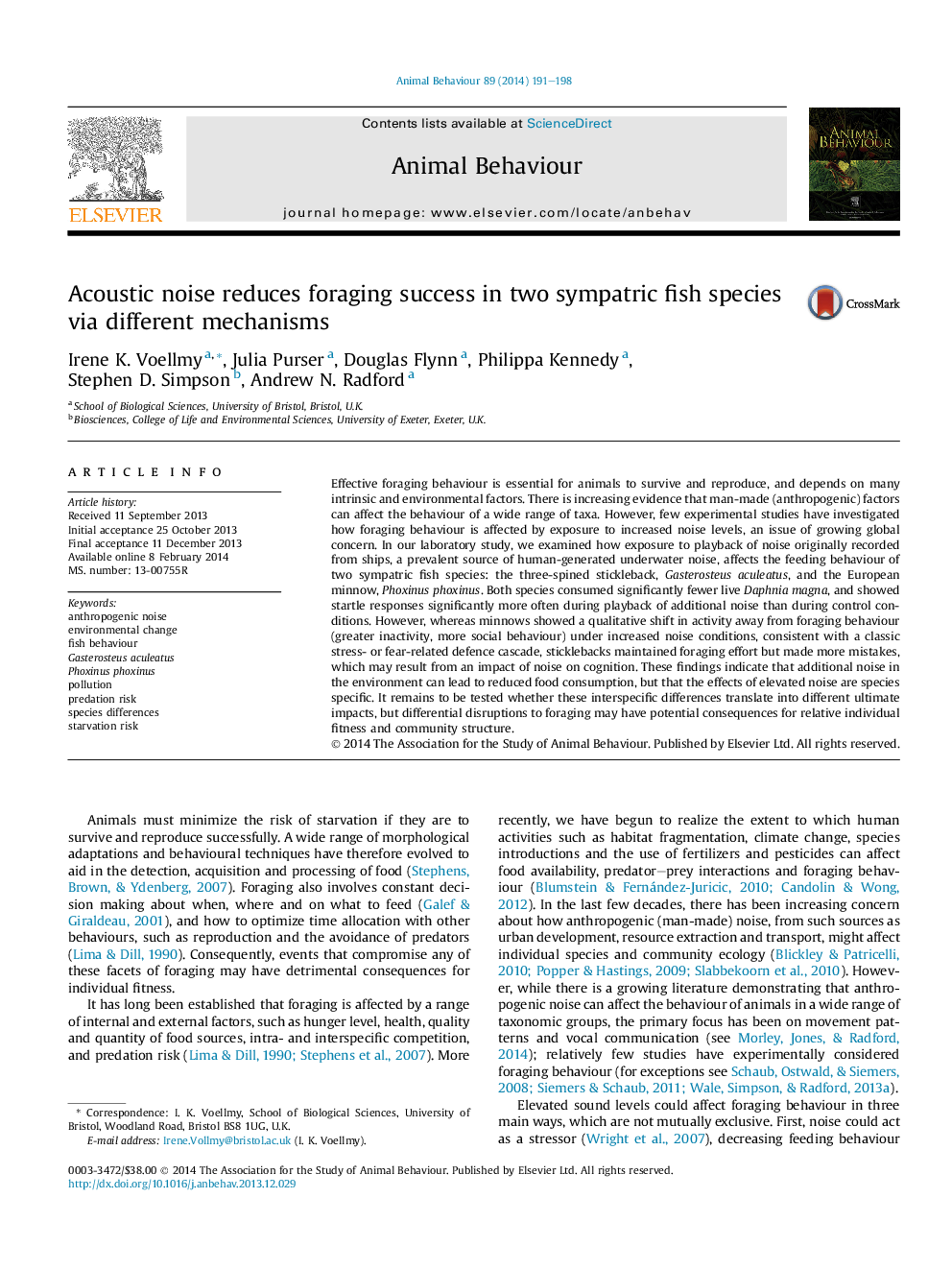| کد مقاله | کد نشریه | سال انتشار | مقاله انگلیسی | نسخه تمام متن |
|---|---|---|---|---|
| 2416462 | 1552239 | 2014 | 8 صفحه PDF | دانلود رایگان |
• Anthropogenic noise has changed acoustic landscapes around the globe.
• In the lab, we investigated how elevated noise affects feeding of two fish species.
• Both sticklebacks and minnows decreased food intake and were startled more often.
• Sticklebacks made more foraging mistakes; minnows reduced foraging effort.
• Similar species-specific noise effects in the wild could alter community structures.
Effective foraging behaviour is essential for animals to survive and reproduce, and depends on many intrinsic and environmental factors. There is increasing evidence that man-made (anthropogenic) factors can affect the behaviour of a wide range of taxa. However, few experimental studies have investigated how foraging behaviour is affected by exposure to increased noise levels, an issue of growing global concern. In our laboratory study, we examined how exposure to playback of noise originally recorded from ships, a prevalent source of human-generated underwater noise, affects the feeding behaviour of two sympatric fish species: the three-spined stickleback, Gasterosteus aculeatus, and the European minnow, Phoxinus phoxinus. Both species consumed significantly fewer live Daphnia magna, and showed startle responses significantly more often during playback of additional noise than during control conditions. However, whereas minnows showed a qualitative shift in activity away from foraging behaviour (greater inactivity, more social behaviour) under increased noise conditions, consistent with a classic stress- or fear-related defence cascade, sticklebacks maintained foraging effort but made more mistakes, which may result from an impact of noise on cognition. These findings indicate that additional noise in the environment can lead to reduced food consumption, but that the effects of elevated noise are species specific. It remains to be tested whether these interspecific differences translate into different ultimate impacts, but differential disruptions to foraging may have potential consequences for relative individual fitness and community structure.
Journal: Animal Behaviour - Volume 89, March 2014, Pages 191–198
